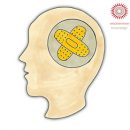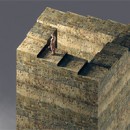It was a tragedy, but I didn’t know it at first. In the long-shadowed gloom of a winter evening, Mary painted the painful picture of what had happened to her husband Dave…
Psychotherapy Techniques Therapy Articles by Mark Tyrrell
The therapeutic relationship is vital; rapport and listening skills help our clients no end. But there are plenty more useful psychotherapeutic strategies and techniques. This collection was created to present some ideas and techniques which perhaps you won’t be so familiar with and also presents more familiar strategies in what I hope are new and interesting ways. Here you’ll find such topics as ‘mirror therapy’ and strategies to help the self sabotaging clients and many more. Grab a cup of tea or coffee, relax and find ideas for therapy you can use straight away.
4 Techniques for Getting Clients to Carry Out Your Therapeutic Tasks
The way you ‘package’ your therapeutic task request can make all the difference. Here are four ways to improve client outcomes by being a kind taskmaster.
How to Help Terminally Ill Clients
Here are six ways you can help terminally ill clients find comfort, relaxation, and resolution.
How to Help Your Asperger’s Client in Their Romantic Life
Relationships can be hard to maintain for those on the autistic spectrum. Loneliness and isolation are common, as the seemingly random ‘noise’ of emotionality and human interaction leave them feeling constantly overwhelmed. Here are three ways to help your Asperger’s clients find the intimacy they seek
Asperger’s Hypnotherapist Reveals How the Condition has Affected His Life
In this podcast, I talk to hypnotherapist Dan Jones about his experiences living with Asperger’s Syndrome.
Therapeutic First Aid: Step 1
Why the first step in therapeutic first aid has to be relaxation.
Approaching Asperger’s
In this guest post, UKCP-registered hypnotherapist Paul Hughes shares some core truths he has learned while specializing in treating clients with Asperger’s Syndrome and high functioning autism.
The Slave Driver Inside – Treating OCD
How can I be a more accomplished therapist when I’m working with OCD clients?
3 Core Psychotherapy Techniques Life Coaches Can Use
Help clients move forward quickly with these three life coaching techniques.
3 Questions to Help Your Client See the Positives in Negatives
Why you sometimes want your client to think the worst and how it helped Peter become a better public speaker.















